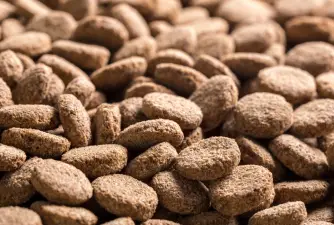Are Dogs Carnivores or Omnivores
29.06.2021.
Dogs love eating meat; there is no point in denying that. We know they have evolved from wolves, and wolves are strict carnivores. There is a great debate going on in the dog world about whether dogs are carnivores or omnivores. Both sides have some interesting arguments, and we will bring you all the information you need to find the answer to the question, “Are dogs carnivores or omnivores?”
The carnivorous theory
The main part of a balanced dog diet is animal protein. The way to get animal protein is by eating meat, and that theory says that dogs are carnivores. However, that is not all the evidence those that think dogs are carnivores mention. Here are some talking points that support the theory of dogs being carnivores;
- Dogs teeth are adapted to eating meat
- Dog behavior, like digging, is typical for carnivores
- Like other carnivores, dogs can endure long periods without a meal
- Dogs have flexibility in metabolic pathways that allows them to eat different type of prey
Many of those that support the idea that dogs are omnivores claimed that, in the wild, wolves ate the stomach content of their prey. Since most of their prey are herbivores, they have ingested plenty of herbs and grain that way. However, there is no scientific evidence wolves ever consumed the stomach content of their prey.

The omnivorous theory
Most serious researchers like Purina, Eukanuba, and many more dog food manufacturers lean towards the theory that dogs are omnivores. It is pretty easy to check what they think based on the ingredients they use in their dog food recipes. Here are the three main arguments that support the theory of dogs being omnivores;
- Since grain takes longer to digest, omnivorous animals have longer digestion tracts, which is the exact case with dogs.
- There is a theory that wolves in the wild often eat berries and grain. Although, wolves eating stomach content of their prey was never confirmed.
- Dogs have three genes that related to starch and glucose digestion. That would make them omnivores.
Salivary Amylase
There is one thing that separates omnivores and carnivores - the salivary amylase. Carnivores do not produce amylase in their saliva. Amylase is specialized enzyme herbivores and omnivores produce to break down starchy carbs into simple sugars. While dogs don’t produce amylase in their saliva, their digestive system adds it in the pancreas and small intestine.
Digestive anatomy difference
Since meat is easier to process, carnivorous animals have shorter digestive tracts, but they have a stronger stomach acid. Stronger acid kills the bacteria in the decaying meat making it safe to consume. Dogs have somewhat medium-long digestive tracts that are adapted to digesting grain and starchy carbs.

Evolutionary difference
Dogs might have started as carnivores, but they might have evolved since their original domestication. They have survived on scraps and human leftovers, so their digestive system adapted and helped them survive and thrive. Over time, dogs adapted and can survive on all sorts of foods.
In conclusion
Whether you believe dogs are carnivores or omnivores, there is no denying their bodies are adapted and prefer meat. When picking the best possible food for your dog, you should look for recipes that include high-quality animal protein sources. Meat is still the most important ingredient in a dog’s diet, and they cannot survive without it.
World Dog Finder team







Share